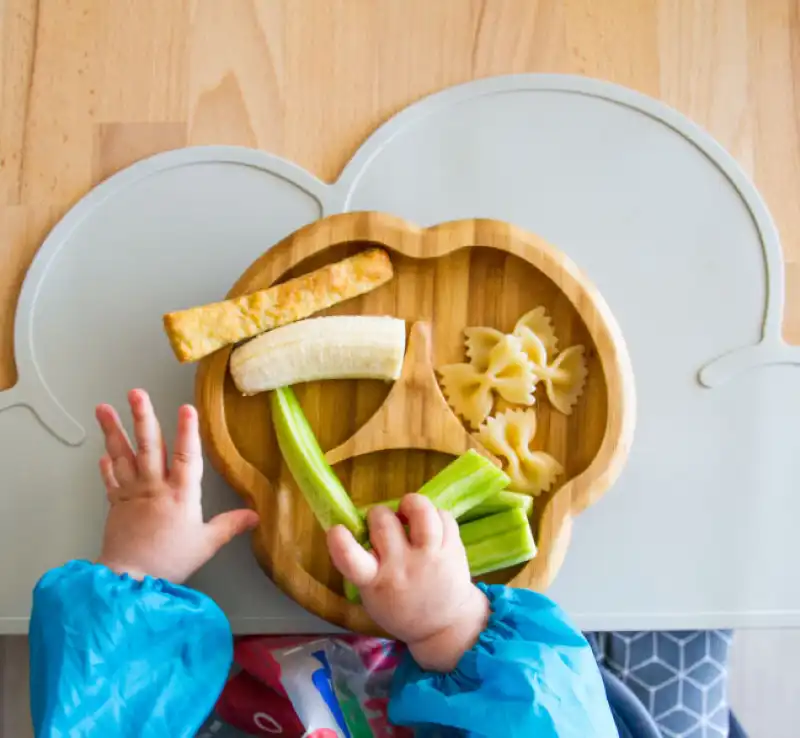
The Baby & Child Nutritionist - When to start offering solid foods
20th July 2021
For many parents the question of WHEN to start offering solids to baby is a tricky one. You can read lots of varied answers online and many people have hugely differing opinions on this topic too. The advice, unhelpfully, often varies from country to country as well.
However, for us in in the UK it’s a bit simpler. Our Government recommend that the introduction to solid foods (termed complementary feeding or weaning) begins at “around 6 months of age”. This advice is in line with the World Health Organisation who recommends that exclusive breastfeeding should continue until 6 months of age with the gradual transition to solid foods thereafter1,2.
However, in reality many parents offer their baby solid foods before they get to 6 months of age. In fact in the UK our Infant Feeding Survey (2010) shows that around 64% of babies are offered solid foods between 4 and 6 months of age and 30% even before 4 months3! This happens for a variety of reasons and in my experience, many parents clearly feel that their little ones are ready for solid foods before they hit that 6 month mark.
Having said that, we don’t have any more up to date research on this since 2010 and I’ve noticed more of a shift in recent years where many parents are starting to understand the importance of waiting until baby is ready and closer to 6 months of age.
As with all aspects of development and milestones, babies are all individual and all grow and develop at their own pace. It’s unlikely that all babies will be ready at exactly the same time as each other, however it is good to be mindful that your baby will probably be ready close to the 6 months mark and to look out for signs that they are approaching the complementary feeding (weaning) milestone.
Some of these signs might include the following:
They can stay in a sitting position and hold their head steady.
They can co-ordinate their eyes, hands and mouth so they can look at the food, pick it up and put it in their mouth, all by themselves.
They can swallow food. Babies who are not ready will push their food back out with their tongue, so they get more round their face than they do in their mouths.
Other signs such as chewing fists, showing a real interest in your foods and seeming to want more milk might also be apparent, but they can also be signs of other things such as teething, learning or having a growth spurt. There is also no conclusive evidence that feeding your baby solid foods will help them to sleep through the night – unfortunately there is no quick win on that one!
Try to look out for multiple signs of readiness on multiple occasions, rather than just one offs so you really do know that your little one is ready for their first foods.
So remember – don’t rush, look out for signs and lastly don’t think that introducing foods means that baby stops drinking milk or that it’ll result in baby sleeping through, that’s not what weaning onto solids is about!
NB - If you are wanting to offer solids to your baby before six months it’s best to have a discussion with your health visitor or GP first or get in touch with a Registered Nutritionist who can help you look for signs that your baby is ready to start accepting and tasting foods other than milk.
References:
) https://www.who.int/mediacentre/news/statements/2011/breastfeeding_20110115/en/
) https://www.who.int/nutrition/topics/complementary_feeding/en/
Others:
https://onlinelibrary.wiley.com/doi/pdf/10.1111/j.1740-8709.2011.00360.x
https://adc.bmj.com/content/94/2/79.full
Back to Latest News